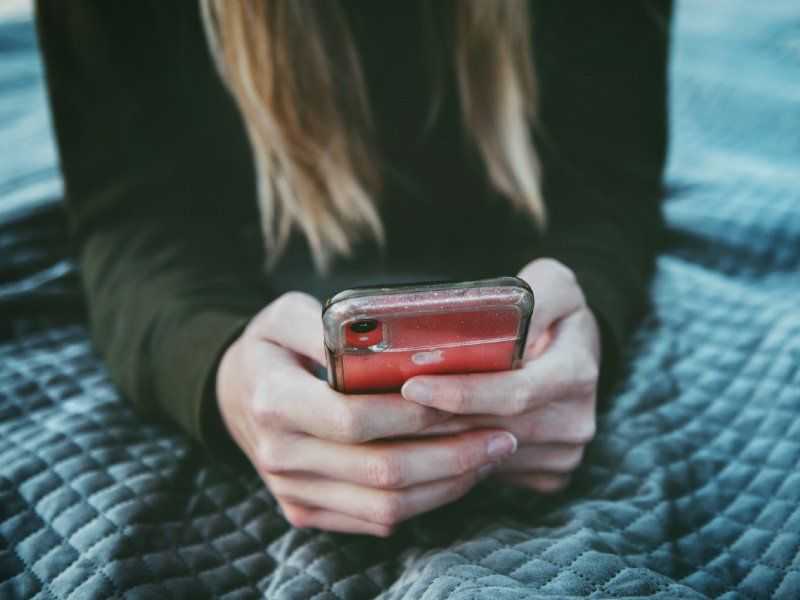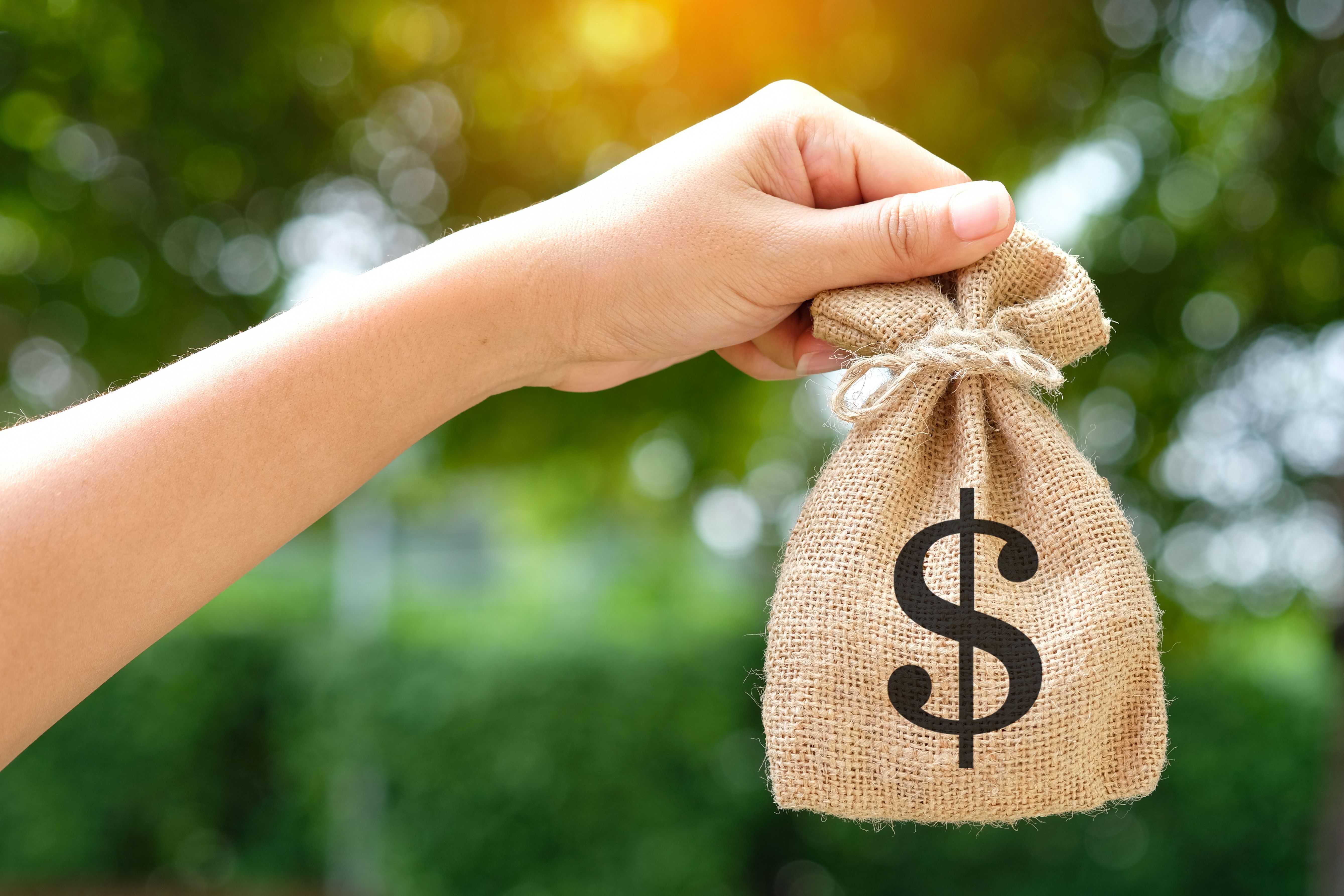Safety manual to protect yourself on dating apps
22.6% of internet users in Mexico are active on one dating app, which they use 3.4 times a week on average.

MEXICO CITY. You’re on your phone, swiping away when, suddenly, you bump into something you like. You decide that it’s the moment to swipe right and, automatically, a pop-up window says you’ve got a ‘match’ and gives you the option to start a conversation with that person. Getting to that point would make you, probably without noticing, take some decisions to care for your safety, and from this point on you should keep making them.
Dating apps were created to meet people with a romantic or a friendly purpose; however, many people use them to commit crimes against those who use them.
Take the Women’s Leadership eClass at Dalia
Ever since ‘The Tinder Swindler’ appeared on Netflix, some people have revealed their own experiences where the ‘match’ has asked for money to meet them or expressed their concern over not being able to afford personal services for any type of personal issue and asks for money, which they promise to pay back. These are small schemes compared to those of the documentary protagonist, who impersonated a millionaire in the diamond industry and boasted his eccentric lifestyle with the money he took from his victims.
That isn’t the only risk, though. Elizabeth Avendaño Rojas, a lawyer of the feminist collective Luchadoras, claims that it’s essential to not lose sight of the fact that what happens within these apps is real and leaves you vulnerable to various crimes.
“Dating apps have a side of harassment; contacting a person and finding out they’re not what you were looking for. That person could harass you when you don’t want to keep having contact with them and well, at the end of the day these apps are digital spaces and spaces we inhabit. They’ve also been used as a method for human trafficking, for example, and then there’s the Tinder Swindler thing, too. This had previously happened with an Australian man who used to come to Latin America and ‘matched’ with everyone to create content for his website”, she points out.
Take the ‘Talent in the business of ideas’ class with Jorge Mondragón and Cory Crespo
She claims that it’s common for people to pretend they’re someone they’re not, that is, identity fraud. Only in the United States, in 2020, there was a loss of 304 million dollars through frauds or scams through dating apps and social media, according to the company Tu Identidad, which points out that criminals use attractive profiles through images they find on the internet, made-up names, or stealing someone else’s identity.
Who, how, and why do people use these apps?
50.6% of internet users in Mexico have had a romantic relationship, a sexual relationship, or a fling through different apps, especially through WhatsApp and Facebook, according to the study Love in the Times of Telecom-COVID 2022, carried out by The Competitive Intelligence Unit (CIU). 22.6% of these users are active on one dating app, which they use around 3.4 times a week. The most popular are Tinder (72.6%), Bumble (47.9%), Happy (11.2%), and Grindr (9.6%). Also, 30.2% of the people who use these apps are looking for a serious relationship, 29.1% want to be friends, and 28.9% are looking for casual sex.
“It’s important to say that the bonds we create through the digital space, be it through an app like Tinder, Bumble, Facebook Dating, or whatever, are true bonds, and the fact that they’re created digitally doesn’t make them less important, less emotional, or with fewer feelings involved. And also, it’s critical to have certain safety controls”, Avendaño Rojas states. However, according to a survey by the CIU, 57% of users lie or exaggerate their features in their description, and 36.9% have had a date with someone that didn’t look like their profile picture.
According to Angie Contreras, a member of the civil organization Cultivando Género, the problems are the stereotypes and the idealization of love that happens on these types of apps, which leads to putting our guard down and putting safety aside.
These dynamics aren’t really new, though, she points out. In past decades, there many of the sort in newspaper ads or through calls to radio shows. What they all have in common is the search for a relationship, any kind of relationship, and the publication of personal information.
Also read: When violence against women in relationships becomes entertainment
How to avoid danger?
People, especially women, are exposed to several dangerous situations through dating apps, such as harassment, identity theft, scams, and even human trafficking. “If we want to use dating apps, that’s ok, but we need to see which one’s best for us, we need to find out more about dating platforms, and what kind of information we’re going to make public. We need to be aware of the information we’re sharing, what we want to make public in a space where I probably don’t know everyone”, Contreras emphasized.
That’s why 72.5% of users want the person to have more than one profile picture before ‘liking’ them, as a safety measure, according to the survey Love in the Times of Telecom-COVID 2022. Also, 63.7% check that they have a verified profile, 48.8% make sure that they have a profile description and 45.1% that they have a social network linked to their profile. However, 15.1% have no measures at all.
When the time comes to meet or to have a date, 89.7% of people use meeting at a public place as a safety measure, 53.8% talk on the phone first, 52.6% tell someone they trust about it, 38.5% share their real-time location, and 16.7% add their date to their social media.
Jazz Bustamante, an LGBT community activist, says that she’s received many reports from people that have been mugged after having a date through a dating app. “It happened the most through Grindr; what happened was that the person didn’t use their real name, and when they met in person and went from the virtual world to the real one, meeting for a drink, almost always in the victim’s house, they drank too much. Many people have gotten their money, their computer, or their phone stolen. There was even a case when the person undressed their victim and put them inside his trunk.”
Unfortunately, these kinds of incidents aren’t taken to the police because of the stigma that surrounds them, since sometimes they’re frowned upon or an object of mockery. Contreras mentioned that new phenomena have appeared, such as fake Instagram profiles of men impersonating women that participate in the erotic-content platform Only Fans, as well as messages from alleged women saying they have uploaded erotic content on their social media, when it’s actually a virus.
Also read: How to act in a sexual harassment situation?
What about the companies?
The member of Cultivando Género points out that, aside from individual measures, the technology companies behind these platforms should take measures to stop crime. It’s a co-responsibility. “What about the companies? What’s their responsibility in this? Hey, platforms and social networks are companies, not civil society organizations or sisters of charity”, she says.
She also stated that every company should have a policy with clear rules, providing credibility for the victims when they report abuses or crimes, and blocking the reported profiles. “If this account has been reported for harassment, take it down, or if an email has been reported, don’t allow it to create an account”, she emphasized.
Good practices
Contreras, Avendaño Rojas, and Bustamante shared some safety tips that could be useful when you use a dating app and when you want to go from the virtual space to the real world with someone.
On the app
- Choose the app according to your interests and read the privacy policy
- Examine the information you’ll share carefully, including the one that’s in your photos
- Make sure to look for verified profiles and links to social media
- Communicate through the app chat
- Find out what’s public about this person and ask people in common about them
- If something you don’t like happens, block them; don’t continue the interaction
- Be aware of the personal information you reveal in your conversations
- Aoid sending money for traveling or visiting
On the first date
- Do it in a public place you’re familiar with
- Verify that the person matches the photos in the app
- Carry along a weapon of personal defense such as pepper spray or a taser
- Always have a charged cell phone on hand
- Share your real-time location with someone you trust; let them know where you are going and what you are wearing. Also, report back to them every now and then.

Esta obra está bajo una Licencia Creative Commons Atribución-NoComercial-SinDerivadas 4.0 Internacional





